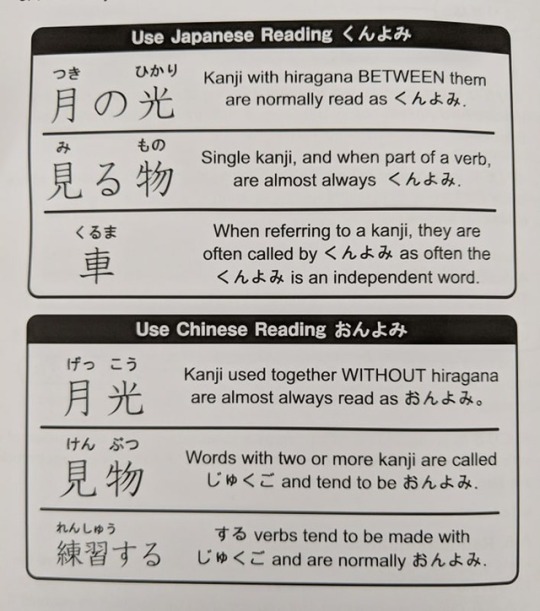Photo
Happy 2019 :)

New Year’s Resolutions || 新年の抱負 Hey guys! For those of you who celebrate Christmas, I hope you had a lovely day, and for those of you who don’t, I hope you had a great Monday! I find that this is the time where most people start preparing for the new year by making plans or making resolutions. In Japanese ‘New Year’s Resolution’ is “新年の抱負・しんねんのほうふ”. So guys, what’s some of your New Year’s Resolutions? Reply to this post or message me on anonymous if you’re feeling shy! It can be in English or Japanese, whatever you’re comfortable with! I find that telling people your plans holds you accountable and helps you to actually achieve them! Let’s look back on this post this time next year and see if we could achieve what we wanted in the new year. Vocabulary・単語・たんご: 新年の抱負はありますか?・しんねんのほうふはありますか? Do you have a New Year’s Resolution? 私の新年の抱負は…・わたしのしんねんのほうふは… My New Year’s Resolution…
Become more polite・礼儀正しくなる・れいぎただしくなる
Eat healthier・健康的な食生活をする・けんこうてきなしょくせいかつをする
Exercise regularly・運動の習慣を身につける・うんどうのしゅうかんをみにつける
Forget my ex・元カレ/元カノを忘れる・もとカレ/もとカノをわすれる
Go on a diet・ダイエットする
Go to the gym・ジムに通う・ジムにかよう
I want to do something that I couldn’t do last year・去年出来なかったことに挑戦したい。・きょうねんできなかったことにちょうせんしたい。
Keep my room clean・お部屋のきれいを保つ・おへやのきれいをたもつ
Learn a new language・新しい言語を学ぶ・あたらしいげんごをまなぶ
Learn Japanese・日本語学習をする・にほんごがくしゅうをする
Learn to cook・料理を学ぶ・りょうりをまなぶ
Lose weight・痩せる・やせる
Meet new people・新しい人に出会う・あたらしいひとにであう
Read more・もっと本を読む・もっとほんをよむ
Reduce stress・ストレスを減らす・ストレスをへらす
Run everyday・毎日走る・まいにちはしる
Save money・お金を貯める・おかねをためる
Spend less time on social media・ソーシャルメディアに時間を費やしすぎない・ソーシャルメディアにじかんをついやしすぎない
Spend more time with family・家族ともっと多くの時間を過ごす・かぞくともっとおおくのじかんをすごす
Stop eating junk food・ジャンクフードを食べるのをやめる・ジャンクフードをたべるのをやめる
Stop procrastinating・ぐずぐずしない
Study abroad・留学する・りゅうがくする
Work on my Japanese・日本語力を磨く・にほんごちからをみがく
My New Year’s Resolution・私の新年の抱負:
Complete my Graduate Certificate in TESOL・TESOLのコースを全部終わらせること。
Get a teaching job・教師の仕事を手に入れること。
Move out of my sharehouse into my own place・今のシェアハウスから、自分たちだけの家に引っ越すこと。
Go to somewhere new at least once a month・月に一回は、行ったことがないところに行くこと。
Reach 20,000 followers on this blog・ブログのフォロワーが2万人を超えること。
Start learning Korean・韓国語の勉強を始めること。
Lose 5kgs・5キロ痩せる!
皆さんの新年の抱負は何ですか?今年もいろいろお世話になりました。よいお年をお迎え下さい。 Everyone, what is your goal for the new year? Thank you for everything that you’ve done for me this year. Please have a good new year!
1K notes
·
View notes
Photo

For all those times you ask yourself, “Onyomi or Kunyomi??”
8K notes
·
View notes
Link
Una herramienta interesante y atractiva visualmente para enlazar palabras a través de kanjis, en lugar de enlazar kanjis y radicales entre sí.
2 notes
·
View notes
Photo

One of the questions I get asked the most often is “How do I make my Japanese more colloquial?” or “How do I sound more like a native?” There’s also a lot of discussion about “Textbook Japanese” versus Japanese you’ll hear while on the train, in line at the store, or out with friends.
This post is quite long and explanatory, so here is a list of what’s covered under the cut!
TABLE OF CONTENTS 1. Plain form 2. Dropping particles 3. です to だ 4. Sentence ending particle の 5. 〜ています → 〜ている → 〜てる 6. て form does not always equal command 7. じゃない & じゃん 8. と to って 9. さ 10. なんか 11. なんて
Keep reading
3K notes
·
View notes
Text
Bullet Journal Spread Ideas
New Year
New Year’s Resolutions How to actually achieve those resolutions Highlights of 2016 Things to look forward to in 2017 Reflection of 2016 How you can make 2017 better Things you did in 2016 that you shouldn’t in 2017 Favorite pictures of 2016 Memorable quotes from 2016 Achievements in 2016 Favorites of 2016 (e.g. music, movies, books, art, food, new activities) New things to try in 2017 (e.g. hobbies, food, places to travel) Upcoming releases in 2017 (e.g. music, movies, books) How you want the world to change in 2017 Important dates in 2016 People you met in 2016
Mind/Emotion
Stress-relieving activities Curiosity page (questions you want the answers to) What if? Page Happiness page Things to do when sad (or any negative emotion) Sleep tracker Mood log Dream log Gratitude list Self care activities Un-do list (stop doing) Unexplainable emotions page (e.g. that feeling when…)
Academic
Grade tracker Vocabulary Achievements list Plan for the school year Revision schedule and progress Things to self study
Life/Experiences
Long term goals Short term goals (e.g. this week/month) Travel log Bucket list Reflections (daily/monthly/yearly) Places you wish to visit Friend lists + about them
Money/Finance
Spendings tracker Savings tracker Financial goals Wishlist
Inspirational Stuff
Brain dump Favorite quotes Recipes Pieces of writing (e.g. news articles, poetry, etc.) Favorite words Story ideas OC ideas
Art/Journaling
DIY and project ideas Handwriting experiments Color swatches/palettes Bullet journal page ideas Doodle page Testing stationery/washi tapes Six word stories A sentence a day Blog post ideas
Entertainment
Playlists (e.g. playlist of the week, song of the day) To read To watch Already read Watched Hobbies to try Favorites list (e.g. movies, albums, songs, books)
Senses
General observations (e.g. people, places, things) Overheard conversations Music/melodies you heard Things you see Different textures/things you touched Things you tasted (could be food, drinks, or inedible things) Interesting/foreign smells
20K notes
·
View notes
Video
youtube
Vídeo sobre algunas onomatopeyas típicas de manga.
2 notes
·
View notes
Link
Para aprender Yojijukugo, or "four-character idiomatic compounds".
0 notes
Link
Sitio de vídeos elaborados por la Japan Foundation para practicar japonés, con subtítulos
0 notes
Text
Talking about jealousy in Japanese
There are different ways to say that you’re jealous in Japanese, depending on the context. This is in response to jam-klaoo’s ask
妬む 「ねたむ」This is the verb for “negative” jealousy. It’s considered very rude and basically comes down to, “I’m jealous that you have it and not me instead, I deserve it more than you, how come you have it?” Gets the particle を before verb.
Ex: 友達は私の仕事を妬みました。–> My friend was jealous of my job. ともだちはわたしのしごとをねたみました。
妬ましい 「ねたましい」the adjective form (gets the particle が)
嫉妬 「しっと」This is the noun for “jealousy” from 妬む
羨む 「うらやむ」This verb is for “positve” jealousy. So it can be best put as, “Oh I’m jealous because that’s really cool/nice and I want one too.” It’s complimenting almost. Gets the particle を before the verb.
Ex: 私は彼女の才能を羨みます。–> I am jealous of her talent. わたしはかのじょのさいのうをうらやみます。
羨ましい 「うらやましい」This is the adjective form of this “jealousy” (gets the particle が)
やきもちを焼く 「やきもちをやく」This jealousy if for love. So if you’re boyfriend is flirting with someone else, or you’re really jealous that person A is dating person B, anything love related. This uses the particle が
Ex: 私は彼氏の彼女にやきもちを焼きます。–> I’m jealous of his girlfriend. わたしはかれしのかのじょにやきもちをやきます。
やきもち the noun for “jealousy”
2K notes
·
View notes
Link
Welcome to a new year and a new series from all of us here at Tofugu! Every month we’ll compile a list of the latest Japanese resources to help you learn and improve your Japanese. This could be apps, websites, books, TV shows, video games, and anything else you can think of.
Our first JLR post includes a website, Netflix show, iOS app, old-fashioned paper book, and some printables to cover whatever your Japanese language learning needs might be. So check them out, work hard, have fun, and we’ll be back with a new stack of tools next month.
Satori Reader
Terrace House
Tinycards
Learn to Read in Japanese: A Japanese Reader
LanguagePrintables
Read more!
998 notes
·
View notes
Text
Easily Differentiate similar Katakana
Shi & N , Tsu & So are made using similar pattern! Use this mnemonics to remember them~

The stroke difference. One is Horizontal while the other is vertical!

Differentiate Ku, Ta and Nu

Happy learning! 。゚✶ฺ.ヽ(*´∀`*)ノ.✶゚ฺ。
…………………………………………
Links:
• CrunchyNihongo - Easy to Learn Japanese Lessons Site • Get our easy Japan lessons on your facebook timeline
3K notes
·
View notes
Photo

Learn Japanese sayings! (KOTOZAWA) 自画自賛 (Ji Ga Ji San)
The 自画自賛 consist of: 自 which means “self” as in 自分 (jibun): oneself and 自由 (jiyuu): freedom 画 which means “picture” as in 漫画 (manga): comic and 映画 (eiga): movie 賛 which means “praise/agree” as in 賛美 (sanbi): praise/adoration
The literal meaning is : Praise one’s own picture. This phrase means : self-praise The English equivalent is: Blowing one’s own horn
Happy learning! 。゚✶ฺ.ヽ(*´∀`*)ノ.✶ฺ
…………………………………………
Links:
• CrunchyNihongo - Easy to Learn Japanese Lessons Site • Get our easy Japan lessons on your facebook timeline
488 notes
·
View notes
Photo

Lingocracy : Build Vocabulary Through Having Fun
A lot of people messaged me saying that they wanted a way to build vocabulary. Others asked for more reading material. Here’s the solution to both! I love this website. Read on to find out why and how it can help you learn Japanese.
What is Lingocracy?
Lingocracy is a relatively new website where you can learn vocabulary through reading passages of text in your desired language. For Japanese there are a few examples already up online, but you are also welcome to add your own - simply copy and paste the URL into the site and it will Lingocracy-ize it for you.
How does Lingocracy Work?
After adding or finding an article, it is presented to you as below with the words underlined. By clicking a word you don’t know, it will change it to red. Hovering over it gives the definition. It remains red throughout the article, so as you come across it multiple times you will recognise it as one that you don’t know, but should know!
There are also audio recordings for words so you can simultaneously work on your pronunciation and listening.
Lingocracy then arranges your learned and unlearned words into handy graphs which encourage progress.
How do I learn vocabulary through Lingocracy?
So you’ve found a bunch of words you don’t know in that pesky news article. Then, you use Lingocracy’s practice app to learn it for good! This is my favourite part of the site because it, unlike other services, makes you review vocabulary in the context of sentences. This helps solidify the words even more than seeing them standalone, and can also help with their definition.
The interface is simple, clean and nice. It reminds me somewhat of Memrise but both sites offer a different style of learning. (Memrise doesn’t use sentences/texts).
What things can I read?
Another fantastic thing about Lingocracy is that you can add your own content. This means you can work through NHK Easy News articles in a really effective way using the practice section.
Lingocracy also offers a Chrome plugin where you can instantly import your web pages into the Lingocracy site.
Bad points
Since Lingocracy is relatively new, the Japanese section is limited. But there are some great things on there already for beginners, and the fact you can add your own content means you can get started with things that interest you straight away. The problem with this is sourcing that content outside of news websites - which may be difficult, especially for beginners.
———————————————————
Lingocracy brings together some features of other websites and a few new innovations of its own to round off a great learning resource. Although not great for absolute beginners, this is fantastic for those wishing to expand and keep track of their vocabulary that they learn while reading materials online.
1K notes
·
View notes
Quote
Resulta que el trabajo de un entrevistador es profesional cuando termina entablando un diálogo con el entrevistado
(via lafuga)
6 notes
·
View notes
Video
blocdenotas:
Chris Harmon: Oil’d
Fuente: Design work life
vimeo
2 notes
·
View notes
Quote
También se me ocurrió que Franny podía haber estado pensando en Viena de manera semejante: utilizarla... para hacerse más lista y más dura y (de alguna manera) lo bastante adulta para un mundo que ninguno de los dos comprendía.
"El hotel New Hampshire", de John Irving
0 notes
